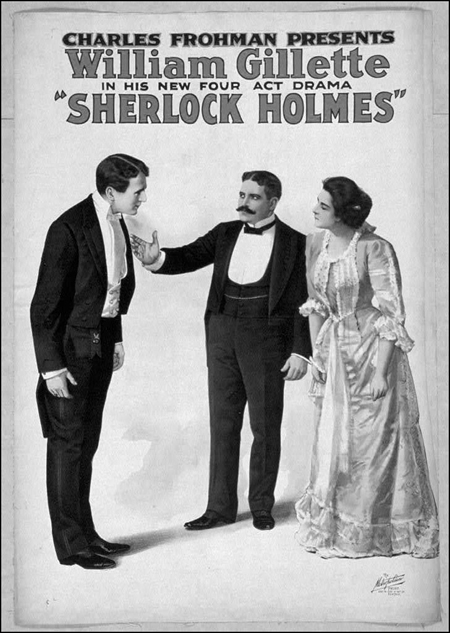27. Illusion of the First Time
Road (Show) Warriors
Suit the action to the word, the word to the action.
—Hamlet, Act III, Scene 2, William Shakespeare

As a presentation coach, I draw an indelible line between presenting and acting; this despite the fact that my education includes a Master’s degree in Speech and Drama from Stanford University. I do this because the businesspeople I coach—already stressed about the mission- criticality of their presentation—blanch at the thought of having to perform.
Nonetheless, I have carried forward one lesson from my studies in drama. It comes from William Gillette (1853–1937), an American actor whose claim to fame was his portrayal of Sherlock Holmes, a role he played more than 1,300 times. No presenter is ever going to tell the same story 1,300 times, but the road warriors who do multiple iterations of their pitch—to sell products, seek partners, or solicit financing—face the challenge of keeping each of those iterations fresh.
Mr. Gillette met that challenge by creating what he called, “The Illusion of the First Time in Acting,” a subject he described in his book of the same name:
There yet remains the Spirit of the Presentation as a whole. Each successive audience before which it is given must feel—not think or reason about, but feel—that it is witnessing, not one of a thousand weary repetitions, but a Life Episode that is being lived just across the magic barrier of the footlights.1
One of the best examples of a pitch that presenters must deliver multiple times is the IPO road show. Conventionally, when a company goes public, the senior management team goes on the road for about two weeks, during which they visit potential investors in about a dozen cities across the country (and often across the oceans as well), telling the same story several times a day, or about 30 or 40 times each week for a total of 80 or more iterations. (Although, as you’ll read in Chapter 74, “Ten Best Practices for the IPO Road Show,” those investor meetings have changed in one important aspect.) With that kind of schedule, presenters occasionally slip into autopilot and experience the “If this is Tuesday, it must be Belgium” phenomenon—leaving their audiences uninvolved, unmoved, and unconvinced.
Investment bankers, who have worked on as many, if not more, road shows than presentation coaches and have seen management team after management team go into autopilot, have developed a device to avoid that phenomenon. Before each presentation, they pick an unusual word and ask the presenting team to find a way to work it into the presentation. This may keep the presenters alert, but means nothing to the investors.
A more effective technique—available to any presenter—is to involve the audience. In an IPO road show, the solution is readily at hand. The investment bankers, who have arranged all the meetings with all the investors, know a great deal about each firm and share that information with the presenters before each session. Unfortunately, in the heat of battle, most presenting teams neglect to use the information.
The lesson for any presenter is to develop knowledge of the audience in advance. In the case of IPO road shows, the spadework is done by the investment bankers, their retail sales force, and their analysts; other presenters must do it on their own. That means that you must learn as much as you can about each of your audiences before you present. Scour the web for company information, read their latest press releases, see what their industry press, peers, and competitors are saying about them. Visit LinkedIn to learn about the roles and backgrounds of people you will be addressing.
And then use it—or you lose it. Pepper your presentation with the information you have gathered. Think of this technique as a tasteful, appropriate form of name-dropping.
Does this mean that you have to change your recurring presentation each time? Not at all. Just add the customized references to the core content of your narrative. You can use this very same technique for a one-time-only presentation, as well as for every presentation you ever give to every audience.
Make your last—especially if it’s the eightieth—presentation as fresh as the first. And while you’re doing all that preparation, thoroughly rehearse your presentation in advance and make your first iteration as polished as the last.
